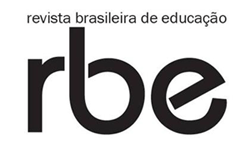ABSTRACT
This essay studies John Dewey’s democracy theories in order to revive their inherent formative aspect. In its first part, it calls upon Richard Bernstein’s interpretation, focusing on the connection he establishes between democracy and the community. In the second part, the notion of community proposed by Bernstein is discussed - inspired by Axel Honneth’s work - thus reformulating the Deweyan theory of democracy. Although there are notable differences between them, the notion of community stands out as their structuring nucleus. Lastly, in its third part, it seeks grounds and the close bond between democracy and community, dependent on the idea of education based on the plasticity of the human condition. That is, it shows that the epistemological argument supporting the notion of the scientific community with participant researchers must be complemented by the anthropological and cultural argument that offers grounds for the notion of democracy as a way of life.
KEYWORDS:
education; democracy; community; human plasticity
